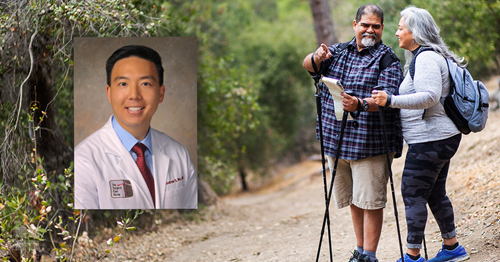 As we learn more about COVID-19, it’s clear that the clinical effects of this disease are particularly severe in certain populations such as the elderly, those with weakened immune systems, and those with obesity.
As we learn more about COVID-19, it’s clear that the clinical effects of this disease are particularly severe in certain populations such as the elderly, those with weakened immune systems, and those with obesity.
Simply being overweight increases your risk of severe illness. Recent studies have shown that obesity is the primary risk factor for developing a severe case of COVID-19 in those under the age of 55. A standard measurement of weight is measuring your BMI. If your BMI is 30-40, you have a one third greater chance of developing a severe case of COVID-19. This risk doubles if your BMI is above 40.
The exact reason is unclear, but we do know that obesity is directly linked to a weakened immune system, and at the cellular level, there is increased production of inflammatory cells. The lungs are an organ that decreases in function with an increase in inflammation.
Lung function is further compromised with increased difficulty in breathing and worsened oxygen exchange. Since COVID-19 primarily targets our respiratory system, it’s more likely obese patients will need a breathing tube to provide oxygen. It is well established that those who are on a ventilator have a significant increase in death from COVID-19.
Everyone needs to continue to practice safe social distancing (six feet or greater), wear a mask, and practice hand hygiene. Your goal is to improve your immune system by eating a well-balanced diet, taking your vitamins, and maintaining your weight. Exercise is very important—increased activity is directly linked to decreasing inflammation and improving your immune system.
The team at CMC’s New England Weight Management Institute (NEWMI) aims to support patients in leading an active, healthy lifestyle and improving their health to minimize risk of disease.
Staying healthy requires personal goals such as engaging in effective exercise of at least 20 minutes a day and counting caloric intake in a food diary. Our comprehensive, multidisciplinary center continues to provide resources to practice a healthier lifestyle, including both medical and surgical weight loss options.
In order to continue supporting our patients, we’ve kept our office open for in-person visits. We’ve also developed a convenient, effective, and robust virtual telemedicine platform with live virtual medical, surgical, and dietitian consultations.
We’ve also moved our monthly support groups and informational sessions online to keep providing the expert help and information our patients need to continue their healthy journey—for both current patients and those new to NEWMI. We hope everyone continues to stay safe, practice social distancing, remain virus-free and live a healthy lifestyle.
Learn more about Andrew Wu, MD, FACS, FASMBS
As published in the Union Leader